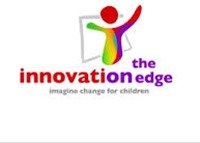Technological solutions and investing in Early Childhood Development

On Saturday 27 June 2015, an ECD hackathon will bring together tech experts, creatives and ECD practitioners to develop technological solutions to the problems encountered in carrying out work in this sector. These challenges include: limited access to good nutrition, a lack of responsive care, an absence of early stimulation through playing, safety considerations, lack of parent involvement and training for practitioners, as well as limited cross-sector integration and meaningful collaboration.
"Latest research shows that investing in Early Childhood Development offers a high social return. However, the sector is fraught with complexity and we need innovation to surface new approaches to scale impact. Technology is one area of innovation that could accelerate solutions and the efficacy of the sector," says Dr. Francois Bonnici, director of the Bertha Centre for Social Innovation and Entrepreneurship, based at UCT's Graduate School of Business.
The Bertha Centre, together with its partners: Innovation Edge, the Department of Psychology at Stellenbosch University, GovHack, Ogilvy and Silicon Cape will be hosting the hackathon. Seven Cape Town based ECD organisations were asked to think about their key challenges and how technology might play a positive role. The tech solutions created on the day will be aimed at addressing these.
"It is a great way for the Cape Town tech community to give back and provide practical solutions around the processes that the ECD community face," says Lianne Du Toit, vice chairperson of the Silicon Cape initiative. Silicon Cape reached out to their network to draw in top technology experts and other NGOs such as Codex and RLabs. GovHack have rallied contacts in government departments to share their datasets and Ogilvy will facilitate creative and collaborative thinking in the teams on the day. The teams will share ideas, brainstorm, and generate relevant solutions.

Sonja Giese, director of Innovation Edge says "Advances in technology offer exciting possibilities for addressing challenges within the early learning space. How do we communicate more effectively with parents about early stimulation? Provide access to educational resources for children living in marginalised communities? Or strengthen early learning practices amongst practitioners who have no access to on-site support or supervision? These are some of the challenges we hope to address by innovating for ECD through technology."
Innovation Edge is a new fund focused on ECD and 'out-the-box' thinking. The team has come on board as a partner and is funding the event and prizes. A judging panel of revered technology experts and ECD researchers will assess the creativity and feasibility of solutions. The best ideas will win cash prizes on the day and have the chance to apply for seed funding of up to R1 million from Innovation Edge.
Examples of successful tech early learning solutions include AskMama, Mxit's Groovy Adventurers as well as the computer game created by the Foundation for Alcohol Related Research and the 9Needs application, both of which are funded by Innovation Edge.